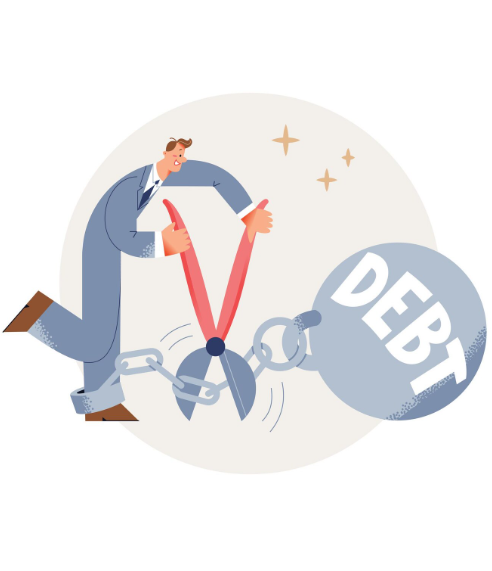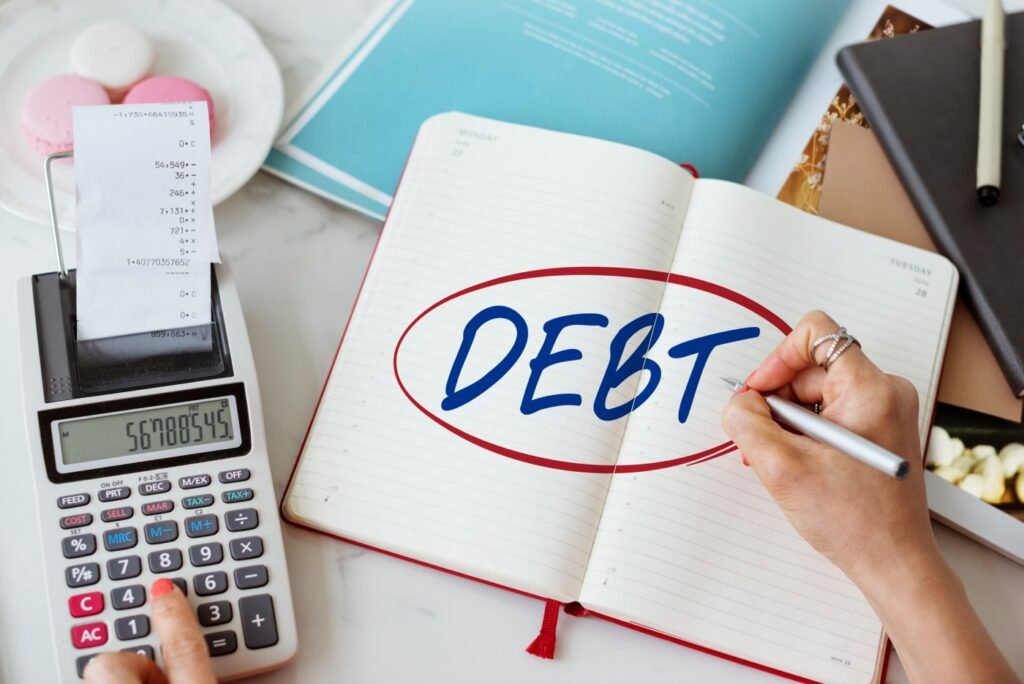Find the Best Solution for Your Financial Freedom!
Struggling with debt? Our in-depth reviews of the best debt relief companies in 2025 will help you make an informed decision!





Debt Relief Companies 2025
Top 9 Debt Relief Companies 2025

National Debt Relief: Best for Overall debt relief services

New Era Debt Solutions: Best for Ethical debt settlement practices

CuraDebt: Best for Tax debt relief

Accredited Debt Relief: Best for Customer satisfaction

Pacific Debt Relief: Best for Educational resources and customer service

Freedom Debt Relief: Best for Program cost guarantee

ClearOne Advantage: Best for Lower monthly payments

Optimal Debt Solutions: Best for No upfront fees

JG Wentworth: Best for Structured debt relief programs
What Is Debt Relief and Why It Matters?
Debt relief is more than just a financial service it’s a lifeline for people who feel trapped by credit card bills, medical expenses, or personal loans that never seem to end.
In simple terms, debt relief means working with professionals who help you reduce, reorganize, or settle your outstanding debts so you can regain control of your finances.
When you enroll in a debt relief program, a company negotiates with your creditors on your behalf to lower the total amount you owe. Instead of juggling multiple payments and high interest rates, you make one affordable monthly deposit into a dedicated account. Over time, this money is used to settle your debts often for 40% to 60% less than the original balance.
But debt relief isn’t only about cutting numbers on paper it’s about mental peace. Constant calls from collection agencies, rising interest, and mounting late fees can take a serious emotional toll. A good debt relief plan helps you rebuild not just your credit, but your confidence.

In 2025, with inflation and high interest rates squeezing budgets, debt relief programs have become a smart and practical option for thousands of Americans. From credit card debt settlement to tax debt negotiation, these services are now more transparent, regulated, and consumer-friendly than ever.
If you’re tired of living paycheck to paycheck or worrying about how to pay off your loans, exploring the best debt relief companies in 2025 could be your first step toward financial freedom.
How Does Debt Relief Work?
Debt relief might sound complicated, but the process is actually straightforward once you understand how it works.
The goal is simple to help you pay less than what you owe and finally break free from overwhelming debt.
Let’s break it down step by step 👇
1. Free Consultation and Debt Evaluation
Everything starts with a free consultation.
You’ll speak with a certified debt specialist who reviews your current financial situation your income, total debt, monthly payments, and creditors.
They’ll then recommend whether debt settlement, debt consolidation, or credit counseling fits you best.
👉 This step doesn’t affect your credit score and helps you see all your options clearly.
2. Setting Up a Dedicated Program Account
If you decide to move forward, the company helps you open a dedicated account in your name.
Instead of paying your creditors directly, you’ll deposit a fixed, affordable amount into this account every month.
This becomes your “negotiation fund” used later to pay off settlements once creditors agree.
✅ You stay in full control; funds are never taken without your approval.
3. Negotiation with Creditors
This is where the real work begins.
Your debt relief company contacts your creditors and negotiates to reduce the total balance.
They aim to settle your debts for 40%–60% less than the original amount owed.
Creditors usually agree because receiving a portion now is better than risking full default later.
💬 It’s like hiring a professional negotiator to fight on your behalf.
4. Approval and Settlement
Once a settlement is reached, the funds from your account are used to pay the creditor in full.
Each time a debt is settled, you receive written confirmation showing the reduced amount and proof that the debt is closed.
🏁 Most clients see multiple accounts settled within 6–12 months of consistent payments.
5. Program Completion
When all your enrolled debts are settled, your program officially ends leaving you debt-free or very close to it.
Some companies even help you with credit rebuilding tools to start restoring your financial profile.
💬 Example:
Let’s say you owe $20,000 in credit card debt.
After negotiations, the company may settle it for $10,000–$12,000 total paid over 36 months in manageable installments.
That’s thousands saved compared to paying the full amount plus interest.
⚙️ Key Points to Remember
You must stay consistent with monthly deposits.
Debt settlement temporarily impacts your credit score but improves once debts are cleared.
Always choose a company with no upfront fees and AFCC/IAPDA accreditation for safety.
When Is Debt Relief a Good Idea?
Debt relief is a smart choice when paying off your debt feels impossible despite your best efforts. It helps you reduce what you owe, lower monthly payments, and avoid bankruptcy all with professional negotiation on your behalf.
1️⃣ When Minimum Payments Don’t Work
If you’ve been paying only minimum amounts and your balance never drops, debt relief can help settle your debts faster and save thousands in interest. 💳
2️⃣ When Debt Keeps Growing
If you owe $7,500 or more in unsecured debt and struggle to keep up, a relief program can stop the cycle of late fees and rising interest. ⚠️
3️⃣ When Collectors Won’t Stop Calling
Once enrolled, the company handles creditor communication so those stressful collection calls finally end. ☎️
4️⃣ When You Want to Avoid Bankruptcy
If you’re considering bankruptcy, debt settlement can often be a safer alternative that helps you rebuild your credit sooner. 🧠
Debt relief is ideal for anyone ready to take control, pay less, and start fresh financially.

Who Qualifies for Debt Settlement?

Purpose: Clarify eligibility for transparency.
Most Americans qualify if they meet a few conditions:
Have unsecured debt (credit cards, personal loans, medical bills).
Owe at least $7,500–$10,000.
Have a steady income to make program deposits.
Are behind on payments or unable to meet full balances.
Companies usually offer a free eligibility check—no impact on your credit score.
SEO keywords: “debt settlement eligibility,” “who qualifies for debt relief,” “free debt evaluation.”
What Are the Pros and Cons of Debt Settlement?
Before enrolling in a debt settlement program, it’s important to understand both the advantages and risks.
Debt settlement can be a life-changing solution for many, but it also comes with trade-offs.
Pros of Debt Settlement
Pay Less Than You Owe
You can often settle debts for 40%–60% less, saving thousands of dollars.
Single Monthly Payment
Instead of juggling multiple bills, you make one affordable deposit each month.
Avoid Bankruptcy
A good settlement program can help you avoid filing for bankruptcy while still resolving your debts.
Stop Collection Calls
Once enrolled, most creditors stop contacting you directly.
Faster Path to Freedom
Many people complete programs within 24–48 months, depending on total debt.
Cons of Debt Settlement
Credit Score Impact
Because you stop paying creditors directly, your credit score may drop temporarily.
Taxes on Forgiven Debt
The IRS may count forgiven debt as taxable income.
Not All Creditors Agree
Some creditors might refuse to negotiate.
Program Fees
Debt relief companies charge 15–25% of enrolled debt as a service fee.
Requires Patience
It can take several months before you see your first settlement.
How We Choose Our Best Personal Loan Lenders
Not all debt relief companies are the same. Some truly care about helping you become debt-free, while others only care about collecting fees.
Choosing the right company can make the difference between success and more financial stress.
Here’s what to look for 👇
- 1. Check Reputation and Reviews
- 2. Understand the Fees
- 3. Look for Accreditation
- 4. Ask About Communication and Support
- 5. Compare Options Before Deciding
- 6. Fast Approval and Funding
- 7. Positive Customer Reviews
Start by researching the company’s track record.
Look for an A+ rating on the Better Business Bureau (BBB) and genuine customer reviews on platforms like Trustpilot or ConsumerAffairs.
Reliable companies have transparent histories, positive client outcomes, and thousands of settled accounts.

A legitimate company never charges upfront fees.
The best debt settlement companies only collect payment after a successful settlement this is called performance-based pricing.
Typical fees range from 15% to 25% of the enrolled debt, but always ask for a written breakdown before signing up.
Choose companies certified by recognized organizations such as:
AFCC (American Fair Credit Council)
IAPDA (International Association of Professional Debt Arbitrators)
These accreditations show the company follows ethical practices and consumer protection standards.
Debt settlement is a long process usually 24 to 48 months so customer support matters.
Pick a company that offers ongoing updates, a dedicated account manager, and an online dashboard to track progress.
Avoid any firm that pressures you into enrolling on the first call.
It’s wise to speak with at least two or three companies before choosing one.
Most offer free consultations, so take time to compare fees, debt reduction estimates, and timeframes.
If a company’s promises sound “too good to be true,” they probably are.
When you need funds quickly, fast approval and quick disbursement are essential. We choose lenders who can approve loans quickly and get the funds to you in a timely manner.
Instant Decisions: Many lenders offer instant approval or near-instant decisions, making it easier for you to know where you stand within minutes of applying.
Same-Day Funding: Some lenders offer same-day funding or can deposit your funds into your bank account within one business day, so you can cover emergency expenses quickly.
Streamlined Process: Lenders who offer a fast, efficient application and approval process help you avoid unnecessary delays. We prioritize lenders who can get the money in your hands as quickly as possible while ensuring your loan terms are favorable.
Customer reviews provide valuable insights into the experiences of other borrowers. We evaluate lenders based on customer satisfaction, looking for lenders who have built a reputation for trustworthiness and reliability.
What Borrowers Are Saying: We only recommend lenders with positive reviews and high ratings from borrowers. Positive feedback regarding the loan process, customer service, and overall experience indicates a reliable lender.
- Proven Track Record: Lenders with strong reviews and high satisfaction rates show that they consistently provide quality service and follow through on their promises.
✅ No upfront fees
💡 Quick Checklist Before You Enroll
✅ AFCC or IAPDA certified
✅ Transparent pricing
✅ Positive BBB and Trustpilot reviews
✅ Free consultation
✅ Clear communication
Frequently Asked Questions (FAQ)
A: Debt relief reduces what you owe; consolidation combines debts but keeps full repayment.
A: Most programs reduce balances by 30–60%.
A: Yes temporarily, but scores usually recover after completing the program.
In most cases, short-term “Pay in 4” plans use soft credit checks that don’t impact your score.
However, longer-term loans from providers like Affirm or PayPal Monthly may involve hard credit inquiries, which can affect your credit.
A: Request a free consultation most companies can pre-qualify you in minutes.